Chinese President Xi Jinping made just his second visit to Cambodia and his first trip in nine years from April 17-18 2025 as he and his Cambodian counterparts strived to reaffirm the strong relationship between the two countries in the backdrop of the recent imminent trade war initiated by President Trump and the US government which has destabilised financial markets and put investor confidence on shaky ground.
As part of the official visit to Phnom Penh, China and Cambodia outlined a strategic vision for deepening trade, infrastructure, and industrial cooperation between the two countries and Xi Jinping had also sent a message to the Cambodian people ahead of his visit as the Southeast Asian nation was celebrating its annual new year festivities, emphasising the importance of building a “China-Cambodia community with a shared future,” rooted in mutual respect and development.
The Chinese visit will also reaffirm the BRI (Belt and Road Initiative) goals and the strategic initiative for the region, as China remains Cambodia’s top investor and trading partner, accounting for nearly a third of its trade volume in 2024.
The trade war tariff escalations between the two most powerful and economically strongest countries reached levels of 145 per cent on Chinese imports from the US, which prompted Beijing to hike its levies on US goods to 125 per cent, preceding the trip.
On the eve of Xi Jinping's arrival in Phnom Penh, the White House said China could face up to a 245 per cent tariff on imports to the U.S. "as a result of its retaliatory actions," and US President Trump said that China was aiming to "screw" the US.
So, what was actually agreed upon on the official State visit between Cambodia and China?
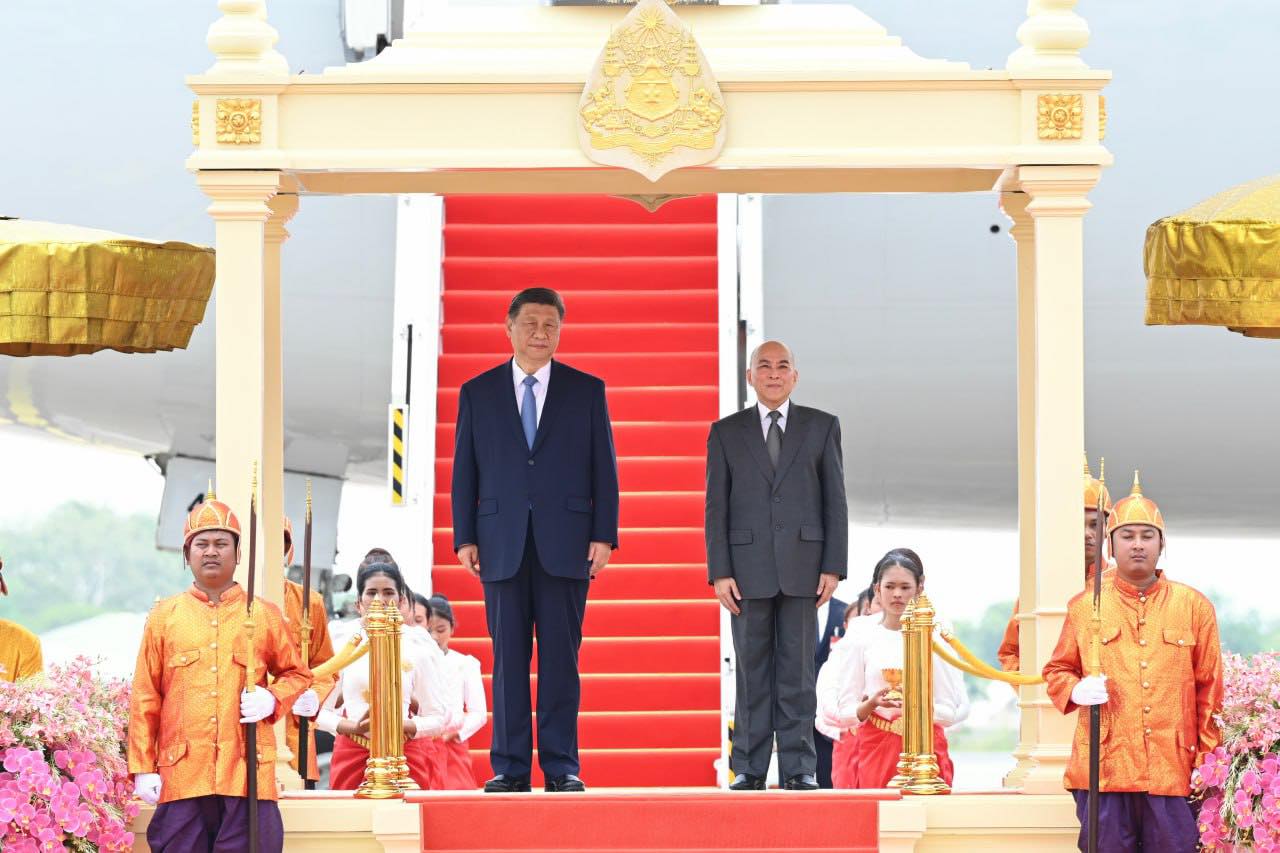
Xi Jinping - Southeast Asian Tour a Show of Strength
Xi Jinping's tour took him to Vietnam and Malaysia before ending his trip in Cambodia with the intention to shore up support in Asia amid the recent US trade war, and media reports suggested Beijing was "tearing down walls" according to the Chinese foreign ministry as it looks to secure more trade with other countries.
The Chinese leader called on both China and Vietnam to "oppose unilateral bullying and uphold the stability of the global free trade system" while he was in Vietnam, where the two countries signed 45 cooperation agreements varying from supply chains, artificial intelligence, joint maritime patrols and railway development.
Xi Jinping met with Vietnamese Prime Minister Pham Minh Chinh and other senior dignitaries. China’s trade with Vietnam has nearly doubled between 2017 and 2024, and the Chinese leader attended the launch of the Vietnam-China Railway Cooperation (a US $8 billion rail project) intended to link Haiphong port to the border with China which is seen as a vital link as the rail line will run through some of Vietnam's key manufacturing hubs.
China and Malaysia then announced the signing of a total of 31 MoUs on Xi Jinping's visit to Malaysia, after he met with the country's King, as well as its Prime Minister Anwar Ibrahim. The agreements cover a range of industries and cooperation, including trade and tourism, railway transportation and agriculture.
Regionally, there will be some concerns too as the SEA trading bloc, has overtaken the US and the European Union as China’s largest export market since 2023, according to Chinese customs data, and region could be flooded with cheap products if they don't end up in the US market which will offer competition for local product lines.
Why The Chinese President’s Visit To Cambodia Will Calm The Investment Climate
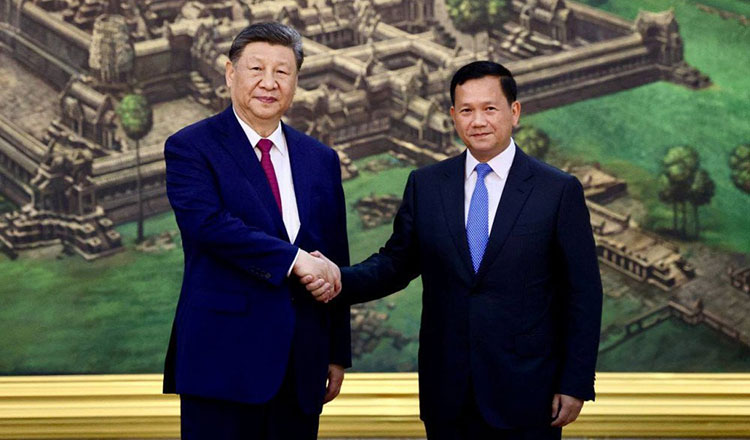
On the eve of the visit, on 16 April 2025, the Council for the Development of Cambodia (CDC), led by H.E. SUN Chanthol, Deputy Prime Minister and First Vice President of the CDC met virtually with Ambassador Jamieson GREER, United States Trade Representative, to discuss the trade tariffs with the US.
The US had imposed a 10 per cent tariff on imports from all countries and temporarily paused additional "reciprocal" rates set individually for each country, depending on the trade barriers faced by the US to allow time for negotiations on new deals. Cambodia, when the rates were first announced, would have been the highest globally (a 49 per cent "reciprocal" tariff).
Before the arrival of Chinese President Xi Jinping, Meas Soksensan, spokesman for the Cambodian finance ministry, told Reuters, "We expect more cooperation, including on infrastructure development."
Xi Jinping had audiences with His Majesty the King and Her Majesty Norodom Monineath Sihanouk, the Queen-Mother, at the Royal Palace, with Hun Sen, President of the Senate of the Kingdom of Cambodia, and Hun Manet, Prime Minister of the Kingdom of Cambodia.
Some of the areas in which China wanted further cooperation included advanced manufacturing, green development, and the digital economy as part of the need to safeguard multilateral trade systems and ensure the resilience of regional industrial and supply chains and to encourage inclusive economic globalisation and resist protectionism.
China and Cambodia have a close relationship, and the Chinese have funded some of the biggest infrastructure projects in the Kingdom. These include the Funan Techo Canal, which was launched to much fanfare in 2024, as well as the new airport due to start operations in the Cambodian capital in July 2025, and the Tonle Bassac River Bridge, to name but a few.
Other major completed projects which Chinese companies have funded are the Phnom Penh-Sihanoukville Expressway, Siem Reap Angkor International Airport, the Kingdom’s largest power plant, and the Morodok Techo National Stadium, which was used when Cambodia hosted the SEA Games for the first time in 2023.
On the southern coast, much of Sihanoukville has been transformed by Chinese-funded projects, notably the Sihanoukville Special Economic Zone (SSEZ), which is jointly developed by both countries. More than 200 international companies operate in the SSEZ, which the Cambodian government has been saying for some time will play a major role in diversifying Cambodia’s economy and upgrading its industrial capabilities.
This also comes on the back of Beijing signing no new loans to Cambodia in 2024, as had been reported by official data from the Cambodian government.

What Was the Outcome of Xi Jinping’s Visit to Cambodia?
China and Cambodia already have the China-Cambodia Free Trade Agreement, and China has been Cambodia’s largest trading partner and source of foreign investment for some time. The Cambodian agri-sector is heavily reliant on China as an export market for a range of products, too.
Xi Jinping praised the China-Cambodia “Diamond Hexagon” cooperation framework, which includes politics, production capacity, agriculture, energy, security, and people-to-people exchange.
Cambodian Prime Minister Hun Manet said on the morning of the visit, “This visit will demonstrate the importance and the strength of Cambodia-China relations. Cambodia-China friendship is historical and enduring. Our two countries have continuously enhanced and expanded our relations and cooperation in all fields,” emphasising that the two countries are jointly working under the Diamond Cooperation Framework and building a Community with a Shared Future for common interests.
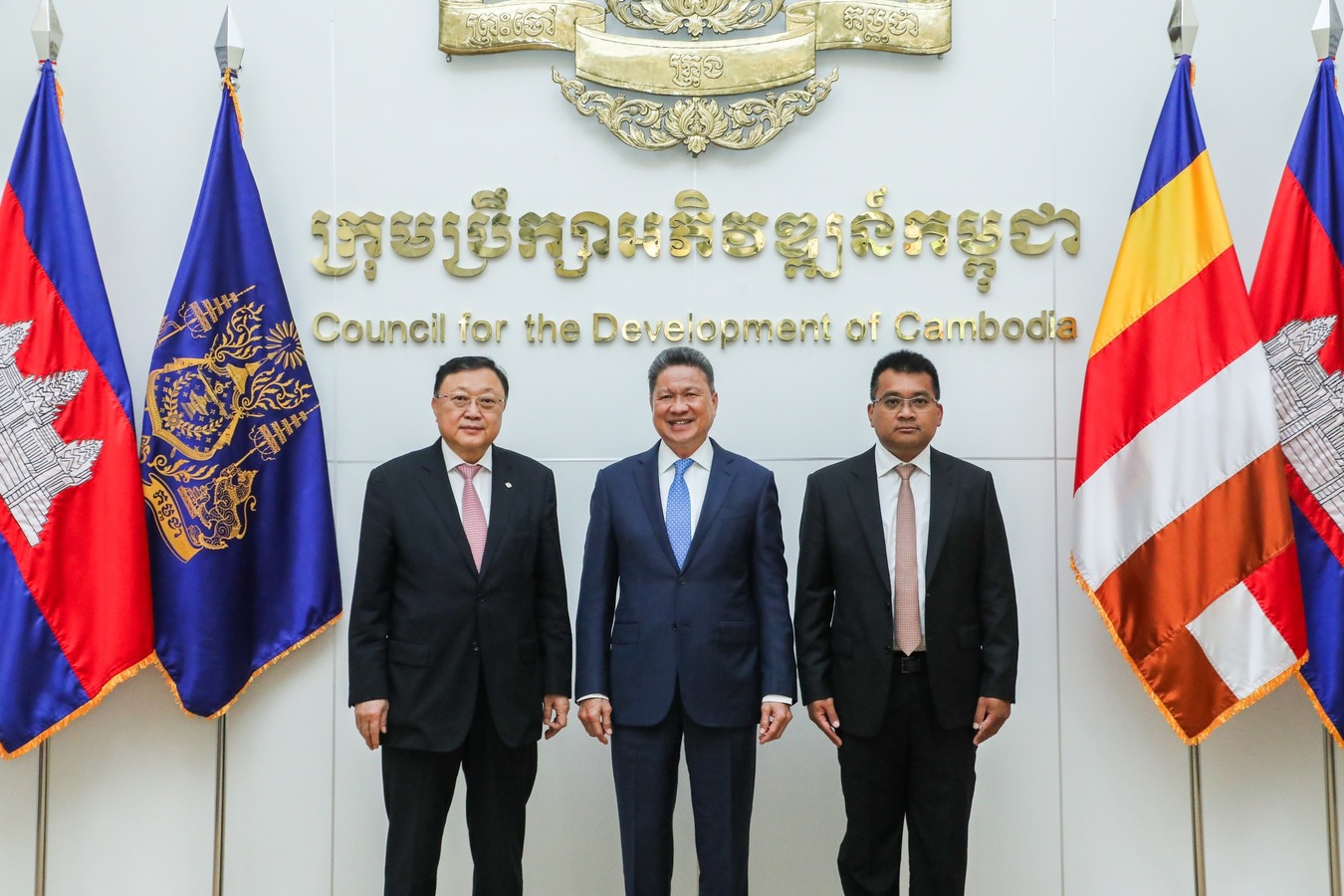
Comprehensive Strategic Partnership
Unsurprisingly, the State visit reaffirmed their commitment to the “iron-clad friendship” as well as the Comprehensive Strategic Partnership and the labelled win-win cooperation between the two countries.
There was a joint statement on building an All-Weather Cambodia-China Community with a Shared Future in the New Era, focusing on implementing the three global initiatives proposed by China.
Ultimately, Cambodia and China signed 37 agreements while recommitting to six areas with a range of areas covered (much like in Malaysia and Vietnam), such as global security cooperation promotion, education and human resources development, agriculture, industrial and supply chains, development assistance, customs, quarantine, health, tourism, media etc.
China also agreed to support Cambodian mine clearance efforts and development initiatives involving roads, rural areas, water systems, and electricity infrastructure.
The MoUs did not provide too many specifics (as they rarely do).
- Both agreed to the Diamond Cooperation Framework with a commitment to fast-tracking the Industrial and Technological Corridor and the Fish and Rice Corridor.
- China further reaffirmed support for the Sihanoukville Special Economic Zone and supports Cambodia working toward its goal of becoming a high-income country by 2050.
- An ongoing commitment to the Chinese-backed Sihanoukville Special Economic Zone, the One China policy.
- Confirmation of 2025 being recognised as the Cambodia-China Tourism Year, which involved both sides jointly developing tourism routes, the promotion of tourist destinations, and strengthening cooperation in tourism safety.
- Geopolitically, Cambodia also agreed that Taiwan is an “inalienable” part of China's territory, and expressed “ opposition to any attempts of interference in the internal affairs of China”, while recognising that the “issues of Xinjiang, Xizang, Hong Kong and Taiwan are purely domestic matters”.
The latter is not a new stance, but could be picked upon by the US in their views of tariff negotiations for the Southeast Asian nation.
On the issue of scam centres and cybercrimes, the Cambodian Ministry of Foreign Affairs and International Cooperation ministry said China praised Cambodia's efforts in “clamping down on illegal online gambling and online fraud, and committed to strengthening coordination and cooperation in law enforcement to combat cross-border crimes, including illegal trans-boundary gambling, illicit drug trafficking, people smuggling, and counterfeiting.”
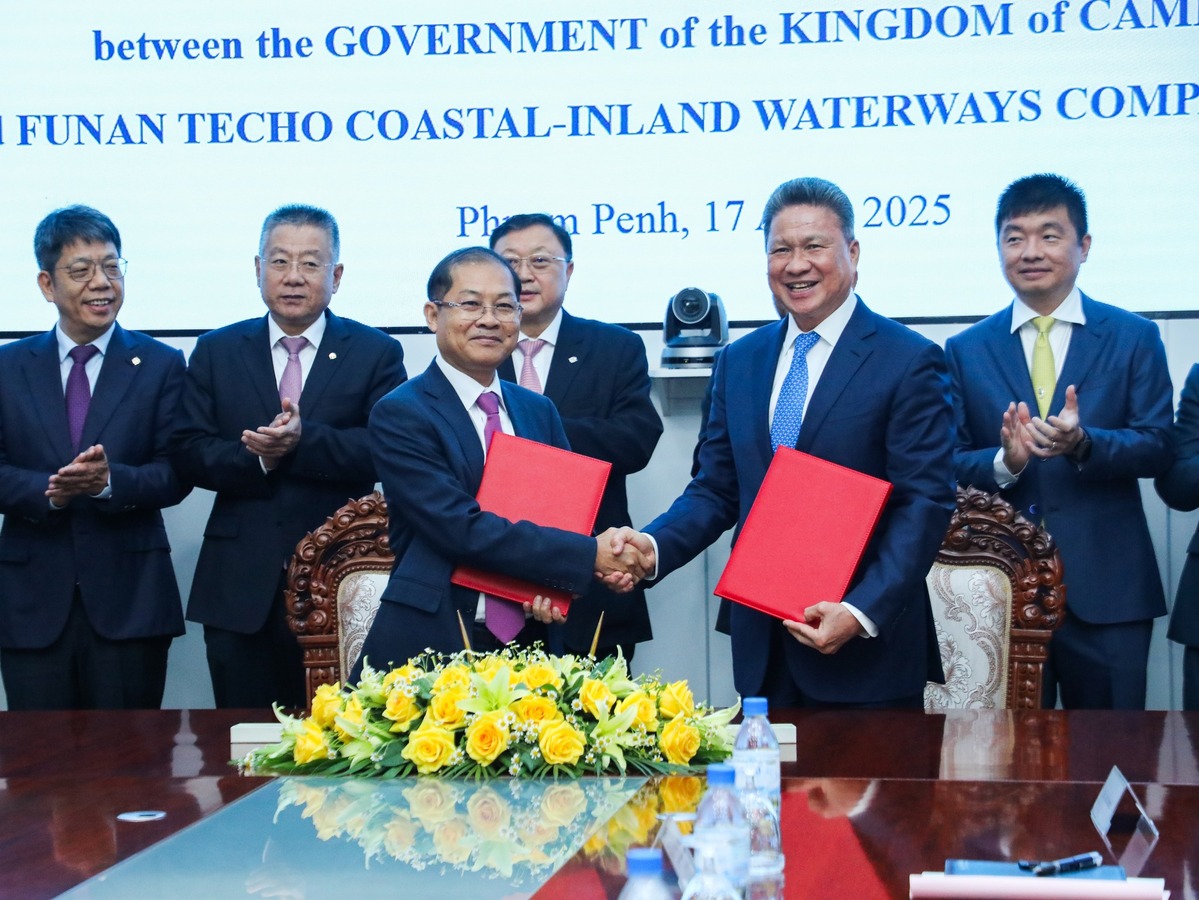
China recommitted to promoting the construction of essential supporting infrastructure, including transportation systems, power and optical cable networks, warehousing and logistics facilities.
On the final day of the State visit, there were further signed agreements relating to commitment from China on large-scale projects such as the Funan Techo Integrated Water Resources Management Project.
H.E Sun Chanthol presided over a signing ceremony of five agreements with Mr. Wang Tong Zhou, President of China Communications Construction Company (CCCC), with the participation of HE the Minister of Public Works and Transport and several other members present reported the Cambodia Ministry of Information.
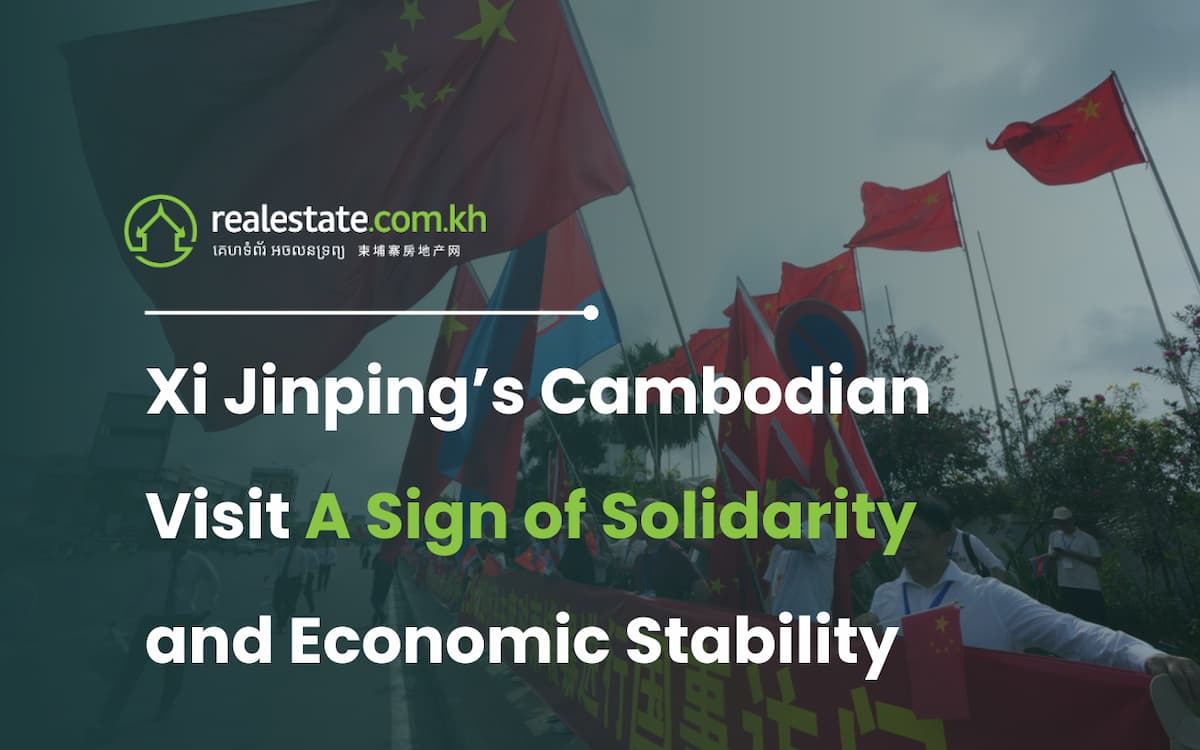



Comments